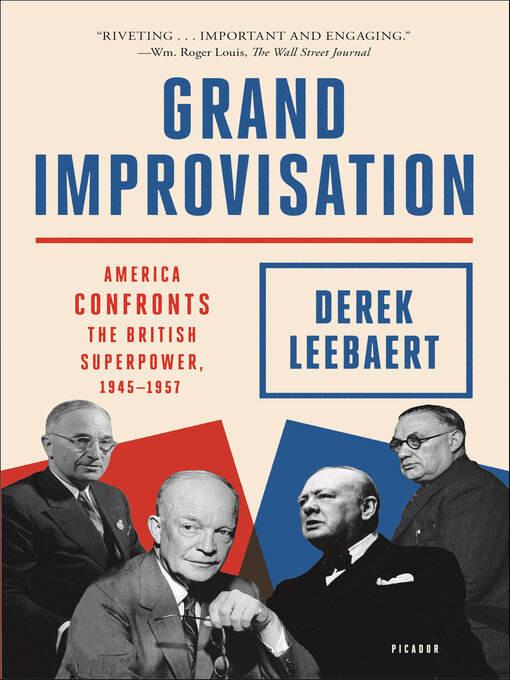- English
- 中文(简体)
- 中文(繁體)
- Bahasa Melayu
- தமிழ்
An enduring myth of the twentieth century is that the United States rapidly became a superpower in the years after World War II, when the British Empire—the greatest in history—was too wounded to maintain a global presence. In fact, Derek Leebaert argues in Grand Improvisation, the idea that a traditionally insular United States suddenly transformed itself into the leader of the free world is illusory, as is the notion that the British colossus was compelled to retreat. The United States and the U.K. had a dozen abrasive years until Washington issued a "declaration of independence" from British influence. Only then did America explicitly assume leadership of the world order just taking shape.
Leebaert's character-driven narrative shows such figures as Churchill, Truman, Eisenhower, and Kennan in an entirely new light, while unveiling players of at least equal weight on pivotal events. Little unfolded as historians believe: the Truman Doctrine and the Marshall Plan; the Korean War; America's descent into Vietnam. Instead, we see nonstop US improvisation until America finally lost all caution and embraced obligations worldwide, a burden we bear today.
Understanding all of this properly is vital to understanding the rise and fall of superpowers, why we're now skeptical of commitments overseas, how the Middle East plunged into disorder, why Europe is fracturing, what China intends—and the ongoing perils to the US world role.
"A sturdy exploration of the lesser-known aspects of the Cold War, focusing on the rivalry between allies as much as enemies." —Kirkus Reviews
"Rich with revealing details, anecdotes, and brilliantly wrought portraits of the key personalities. Lively and entertaining, this book will change the way we look at the immediate postwar years." —Liaquat Ahamed, Pulitzer Prize–winning author of Lords of Finance


